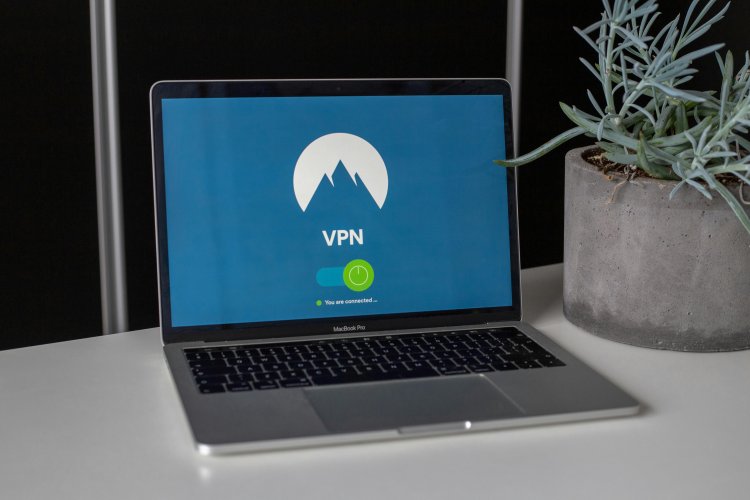what is internet security Why do we need internet security?
Internet security includes a set of measures and protocols designed to protect computer systems networks and data from unauthorized access cyber attacks and other potential threats on the Internet.
what is internet security Why do we need internet security?
Internet security
Internet security includes a set of measures and protocols designed to protect computer systems networks and data from unauthorized access cyber attacks and other potential threats on the Internet. It involves the implementation of technologies practices and policies to protect information and ensure the confidentiality integrity and availability of online resources. Given the increasing reliance on online services transactions and communications Internet security is an important aspect of modern digital life.
Importance of Internet Security
1. Protection from cyber threats
- Internet security is paramount in protecting against a myriad of cyber threats including viruses malware ransomware phishing attacks and more. These threats can compromise data integrity disrupt services and cause financial losses or privacy violations.
2. Maintaining Data Privacy
- Internet security measures such as encryption help maintain the confidentiality of sensitive information. This is important to protect personal data financial details and business secrets from unauthorized access or interception.
3. Ensuring Data Integrity
- Internet security protects data integrity by preventing unauthorized modifications deletions or changes. By ensuring that information remains accurate and unchanged users can be confident in the reliability of the data they access online.
4. Security of Online Transactions
- With the rise of e-commerce and online banking Internet security is essential to secure financial transactions. Secure Sockets Layer (SSL) encryption and other measures protect the confidentiality and integrity of financial information during online transactions.
5. Preventing Identity Theft
Internet security plays an important role in preventing identity theft. Cybercriminals often attempt to steal personal information such as usernames passwords and social security numbers in order to entrap individuals for fraudulent activities. Strong security measures help reduce this risk.
6. Protection against phishing attacks
- Phishing attacks involve fraudulent attempts to obtain sensitive information by posing as trustworthy entities. Internet security solutions including email filtering and awareness programs help users recognize phishing scams and avoid falling victim to them.
7. Mitigating DDoS Attacks
- Distributed denial of service (DDoS) attacks aim to put pressure on a system or network making it unavailable to users. Internet security measures such as firewalls and intrusion detection systems help reduce the impact of DDoS attacks by identifying and blocking malicious traffic.
8. Securing Internet of Things (IoT) devices
– Internet security measures are critical to protecting connected devices and preventing unauthorized access ensuring the overall security of smart homes industrial systems and other IoT ecosystems.
9. Maintaining National Security
Internet security is an important component of national security. Governments and critical infrastructure rely on secure networks to prevent cyber threats that can have serious consequences for national defense public safety and economic stability.
10. Building Trust in Online Services
- Trust is essential for the adoption and success of online services. Internet security measures such as secure website connections privacy policies and data protection practices contribute to building trust between users and online platforms.
11. Compliance with Regulations
– Many industries and sectors have established regulations and compliance standards regarding the protection of sensitive data. Internet security measures help organizations comply with these regulations avoiding legal consequences and reputational damage.
12. Preventing Data Breaches
Internet security is helpful in preventing data breaches which can have serious consequences for individuals and organizations. By implementing strong security measures businesses can protect their databases and customer information from unauthorized access.
Why do we need internet security?
1. Comprehensive Cyber Threat Landscape
- The Internet is a vast and interconnected environment where cyber threats are pervasive. Without effective Internet security measures individuals and organizations are vulnerable to a wide range of cyber attacks that exploit vulnerabilities in systems and networks.
2. Security of Personal and Financial Information
- Individuals store and transmit sensitive personal and financial information online. Internet security is essential to protect this information from access or misuse by unauthorized parties protecting users' privacy and financial well-being.
3. Global Connectivity and Interdependence
- The global nature of the Internet means that cyber threats can originate from anywhere and affect users around the world. Internet security is essential to counter these threats and maintain the stability and functionality of interconnected systems.
4. The rise of remote work and digital collaboration
- The increasing trend of remote work and digital collaboration has increased the importance of Internet security. As individuals access corporate networks and collaborate online secure connections and authentication mechanisms are critical to prevent unauthorized access and data breaches.
5. Protection from Malware and Ransomware
- Malicious software such as malware and ransomware can cause significant damage to systems and data. Internet security measures including antivirus software and regular updates are essential to detect these threats and minimize their impact.
6. Securing Critical Infrastructure
Securing Critical Infrastructure Critical infrastructure including energy grid transportation.
What's Your Reaction?




















